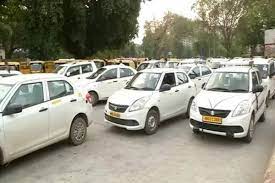
In a crucial step towards combatting Delhi’s perennial air pollution crisis, the Delhi government has unveiled the Delhi Motor Vehicle Aggregator and Delivery Service Provider Scheme. The scheme sets forth a groundbreaking mandate requiring all cab aggregators and delivery service providers to transition their entire fleet to electric vehicles (EVs) by 2030. This move aims to mitigate the environmental impact caused by vehicular emissions, a significant contributor to the Capital’s pollution woes.
Transport Minister Kailash Gahlot announced the scheme, emphasizing that interested entities must register with the government within 90 days from the scheme’s notification date to procure a license, valid for five years. The policy encompasses all aggregators involved in passenger transport, delivery services, and e-commerce vehicles.
“This historic decision by a state government is aimed at combating air pollution. By 2030, all aggregators, including those in passenger transport like Ola and Uber, delivery services, and e-commerce platforms, are mandated to operate solely on electric vehicles,” stated Gahlot. However, queries directed to cab aggregators Ola and Uber regarding the new scheme remained unanswered.
The policy also addresses bike taxis, permitting electric two-wheelers exclusively. Previously halted due to safety concerns, bike taxis were given the green light, under the condition of being electrically powered. Aarender Singh, president of the Apna Bike Taxi Association, appealed for more time to transition to EVs, citing challenges such as limited EV range and higher costs, affecting nearly 100,000 riders.
Additionally, the scheme outlines a phased transition plan for various vehicle categories, ensuring a gradual shift towards EVs. It mandates percentages of fleet transitions for passenger and goods four-wheelers, three-wheelers, and two-wheelers over specific timelines within four to five years.
Transport Secretary cum Commissioner Ashish Kundra clarified that only electric bikes would be registered, emphasizing non-registered vehicles’ liability for impoundment. Moreover, the scheme necessitates aggregators to establish a 24×7 “command and control centre” to monitor vehicle movements and respond to alerts, ensuring increased accountability and safety.
Experts commended the scheme, stating that while incentives are effective, mandating EVs is pivotal in promoting cleaner transportation. Amit Bhatt from the International Council on Clean Transportation highlighted the significant role played by vehicles in contributing to local pollution, making the transition to EVs imperative for curbing emissions in the city.
The Delhi Pollution Control Committee (DPCC) and the environment department data revealed that vehicles accounted for approximately 36% of the current pollution in Delhi, underscoring the urgency of implementing stringent measures to combat air pollution in the Capital.
Sources By Agencies




